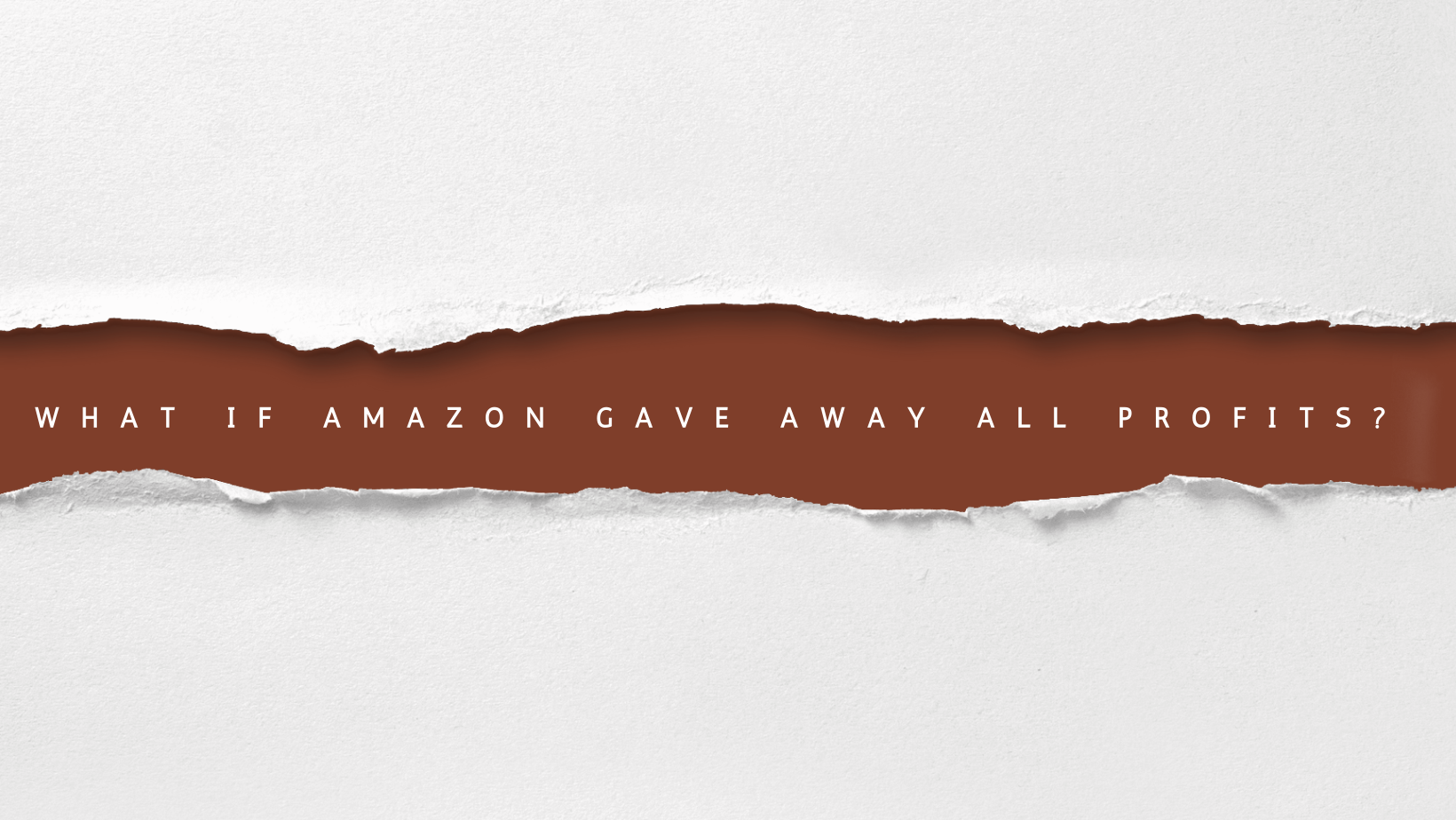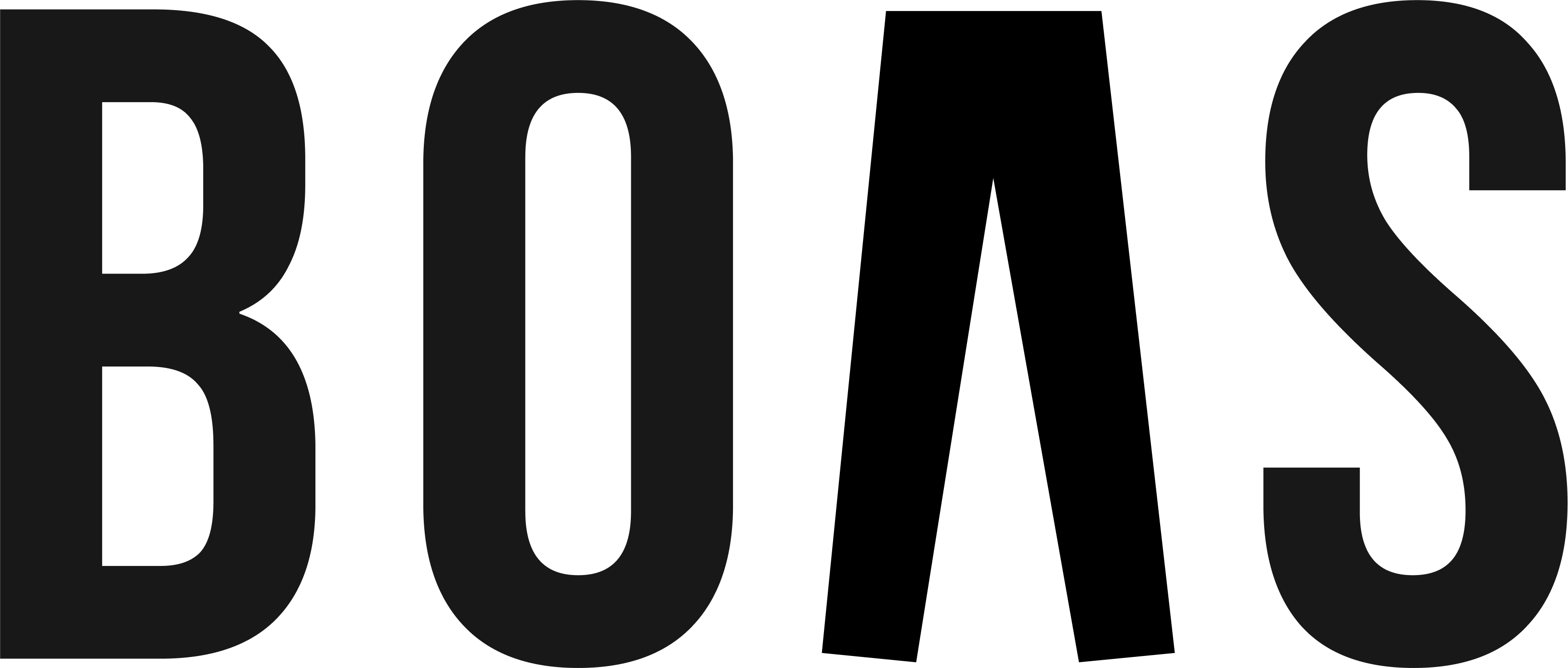
What if Amazon gave away all of its profits?
Written by Simon van der Holst
The biggest online marketplace in the world, Amazon, reported a profit of 33.36 billion dollars in 2021, and the company certainly isn’t slowing down any time soon.
The total value of all goods and services in Yemen is ~31 billion per year. This means that a single company generates more income than a country of almost 30 million people. Amazon is worth 1.6 trillion dollars. At BOAS we’re not even sure how many zeros a trillion has (a million?). If you compare that to other countries, the “country” Amazon is richer than 92% of all countries on the globe.

A lot of the wealth generated by Amazon flows to the top, where only a few people hoard all of the wealth. Amazon employees at the lowest level often have to get by with minimum wage, while the people at the top like Jeff Bezos get to live life in extreme luxury, buying 500 million dollar yacht’s. We’re usually pretty broke after buying superyachts, but Jeff only spent 0.28% of his wealth (close to 200 billion dollars) on this yacht. The median net worth, so the wealth of an average person in the EU, is 26.000 US dollars. 0.28% of that is 74 dollars. Buying a superyacht for Jeff is similar to you buying just the left Apple AirPod because you’d have to spend more than 2 superyachts worth of Jeff’s money to get both.
But what if Amazon handled this wealth differently? What if Amazon gave away all of its profits?
At BOAS, our business philosophy is to make a lot of profit in a sustainable way, and then give it away. All of it. What would it look like when applied to a company like Amazon? BOAS’ only priority is maximizing its positive impact rather than maximizing profits. These values make the growing pains of the BOAS worse than companies who follow more traditional business values like Amazon. BOAS gives away 5% of its sales and can’t reinvest that money into growth like Amazon did for many years. Currently, BOAS takes around 20% of sales as a commission. 15% of that is used to pay the bills (paying people and taxes for example) and reinvest into the company. We give away the remaining 5%. We’re talking to rich people who will help BOAS grow (read: give BOAS money instead of buying yachts) until we can finance BOAS ourselves. So if you're reading this and you're rich: how would you like not owning a yacht? Write us an email ;)
If Amazon followed these principles, 33.36 billion dollars would be donated to charities each year, instead of going to Bezos’ or investors’ bank accounts. A study backed by the German government estimated the cost of ending world hunger by 2030 to be 330 billion dollars. That's 33 billion dollars each year, which happens to be an average yearly profit for Amazon. Studies find that around 670 million people globally are consistently malnourished. If Amazon gave away all their profits each year, 670 million people wouldn’t go to bed hungry and many lives would be saved. Effective charities save lives for as little as 4.500 dollar per life. So in theory, directing 33 billion to these charities could save more than 7 million lives.
More than 7 million lives, each year.
Giving 33 billion dollars each year might make the giving a lot less effective because the easiest ways to save lives would be fully funded. But even if it’s significantly less effective, Amazon can save millions of lives and improve many more dramatically if they start giving away all of their profits.
We know they won’t do that, and it’s probably improbable, or even impossible at the stage that Amazon is in. So we’re going to try and build it ourselves, and it’s called BOAS.
Now, you might ask yourself how BOAS would ever get to Amazon’s level of success, to which we would say that it will be difficult. Very difficult. Amazon is known to practice unethical business, such as tax avoidance and general mistreatment and underpayment of employees. BOAS vows to only do good for the world, which makes competing with businesses that strive for maximum profit regardless of ethics difficult. We will also likely have to pay a higher tax rate than Amazon, which we feel is incredibly unfair and will fight continuously. But even then, it’s not impossible. Companies such as Newman’s Own have similar business models to BOAS and are very successful. Newman’s Own also donates all of its profit to charity, and has donated over half a billion to charity since its founding in 1982. This is why you, the customer, is especially important for BOAS. Your support is vital for the growth of BOAS, and by extension, a better world. If you can tell 5 people about BOAS, and they all tell another 5, we might someday be the next Amazon.
Do you want to join us in saving a million lives?















